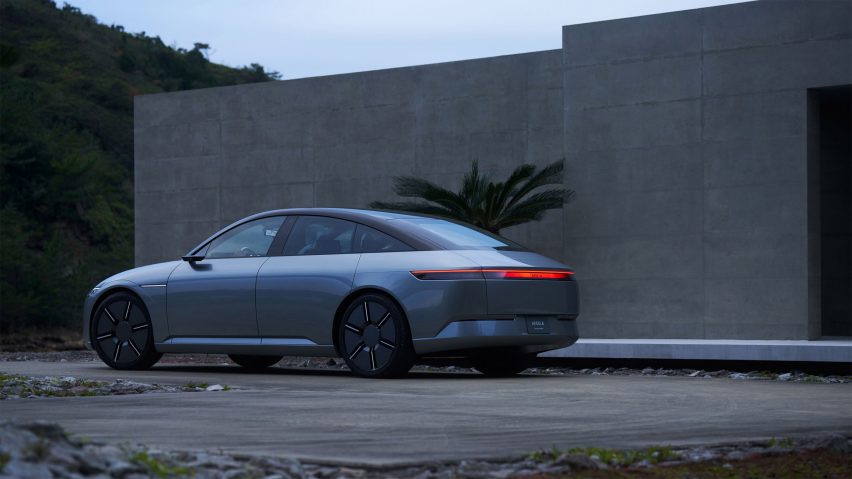
Sony's first-ever car will function as a "moving entertainment space"
Consumer electronics company Sony and carmaker Honda have combined their expertise to produce an electric car prototype, which was unveiled at the Consumer Electronics Show this week.
The electric sedan – released under joint venture Sony Honda Mobility's newly launched car brand Afeela – was designed to prioritise entertainment and interaction.
It features interfaces developed by Epic Games and screens for movies, games and "infotainment" fitted to both the interior and the exterior of the car.
Drivers will be able to make use of these amenities even when behind the wheel, as the car is set to offer autonomous driving guided by an array of 45 different sensors and cameras.
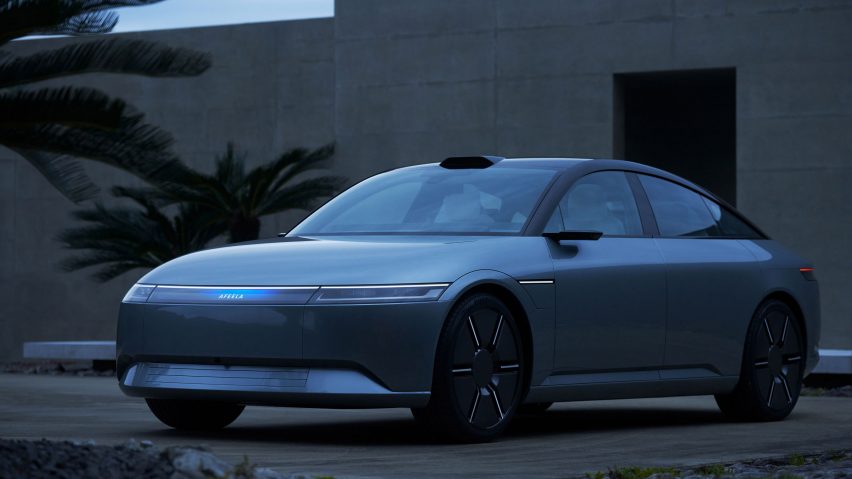
These sensors will also enable drivers to personalise Afeela's cockpit based on their biometric data, the companies have suggested, matching the positioning of the seat, steering wheel and surround sound to their exact height.
"We want to think out of the box to revisit the underlying philosophy of vehicle design," said Yasuhide Mizuno, CEO of Sony Honda Mobility, in a presentation at CES.
"In addition to movies, games and music, we envision a new in-cabin experience using our expertise of UX and UI technologies."
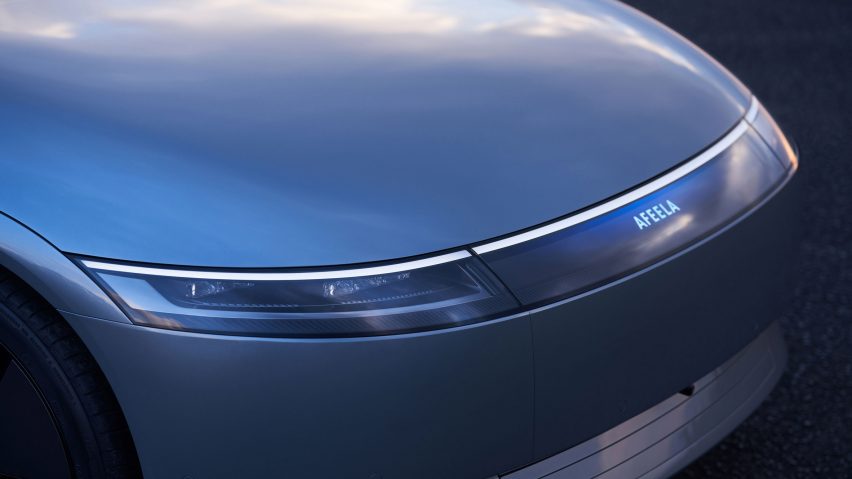
As a result, the all-wheel drive electric vehicle (EV) would effectively function as a "moving entertainment space", Mizuno explained.
This starts on the exterior with a narrow display screen known as the "media bar", which is nestled between the car's headlights and displays the car's logo in lieu of a physical emblem.
The screen could also be used to glean other essential information such as the EV's charging status, Sony Honda Mobility has suggested.
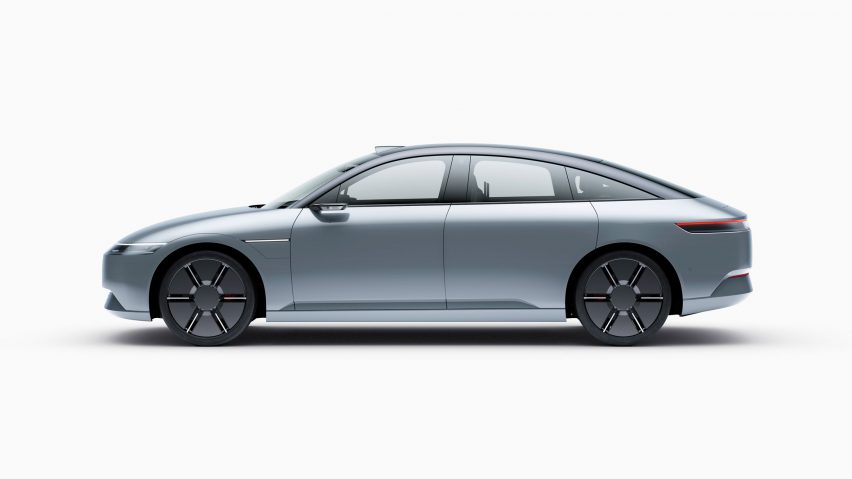
The company compares Afeela's sinuous exterior to that of a spaceship, complete with a glass roof and self-opening doors.
In contrast, the car's interior is almost entirely held in white and designed to "embrace the occupants in a soft cocoon".
Stripping the cockpit back to its essential components helps to minimise distraction and keep the emphasis on the car's entertainment offering. Even the steering wheel is cut in half to form a semi-circle and avoid obstructing the panoramic screen that wraps the entire front of the car.
The rear of the car is serviced by two large display screens of its own, complete with surround sound for every seat.
Beyond films and games, the car's various screens will also display augmented reality (AR) driving assistance graphics developed using Unreal Engine – the gaming engine of American games developer Epic Games – as pioneered in General Motors' Hummer EV in 2020.
"Modern vehicle technology has loads of potential to enhance the driving and passenger experience with sensors, active safety systems and beyond," said Epic Games' chief technology officer Kim Liberi.
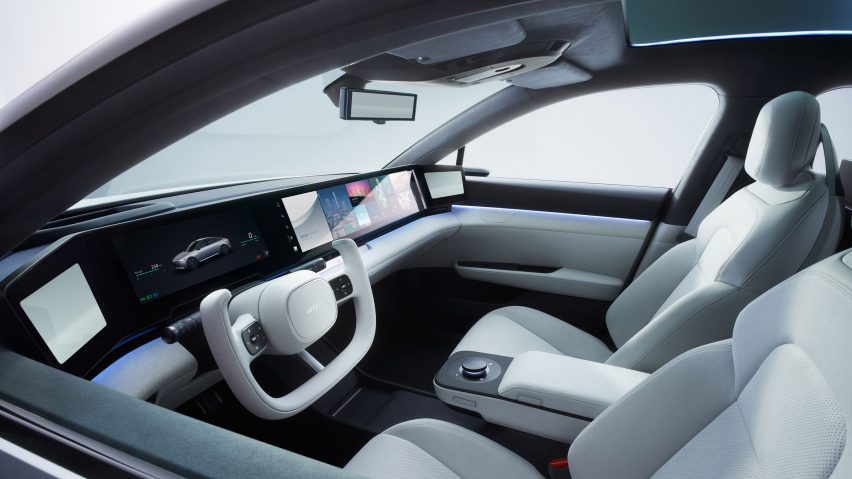
"And the most natural way to visualize such data is through intuitive, interactive photoreal augmentation – the very stuff that our game engine was built to do," he added.
By combining Sony's sensors and Honda's expertise in driver safety, the companies hope to develop the "world's highest level" autonomous and assisted driving system for Afeela.
This system will have "level three" self-driving capability, the companies said, meaning that the car is autonomous under particular conditions, allowing drivers to use smartphones or watch movies while on the go.
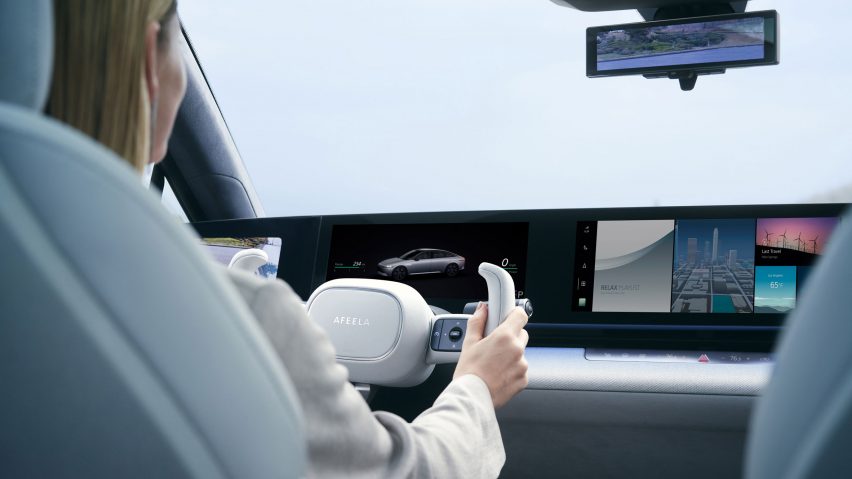
All of Afeela's systems will be run via dedicated software, which Sony says will be continually updated based on a subscription model.
In total, the car's electronic control unit will have a maximum computing power of 800 trillion operations per second (TOPS).
In order to accommodate all the high-performance computing required to perform these various tasks, Afeela is working with telecommunications company Qualcomm to integrate its Snapdragon digital chassis into the design.
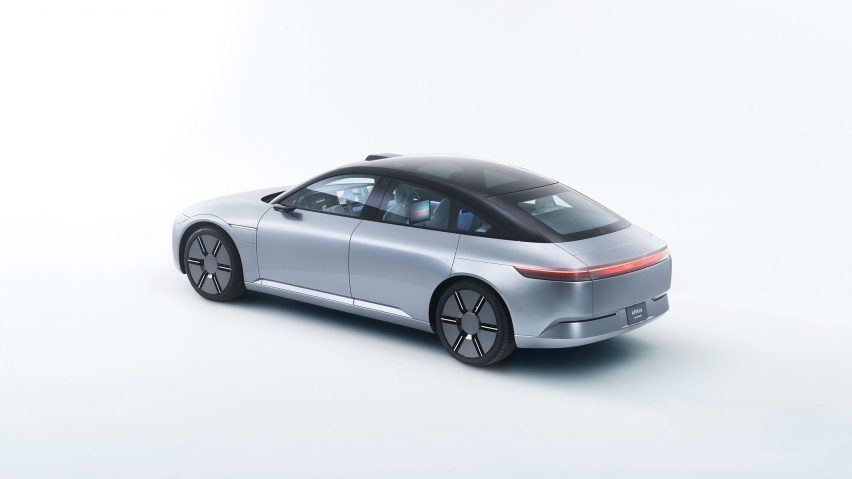
The result is a "software-defined vehicle" that is connected to the cloud "100 per cent of the time", according to Qualcomm CEO Cristiano Amon.
"Companies can now talk to customers every day in real-time personalized experiences, bring new services, entertainment and then, of course, safety and autonomy," he said.
Honda and Sony are now working to develop a production model of the prototype, which is slated to be on sale in 2025 and delivered the following spring.
Afeela is an evolution of Sony's Vision-S concept sedan, which the company debuted at CES in 2020.
Car company Rolls-Royce also recently unveiled its first fully electric car, the Spectre coupe.
CES 2023 is taking place in Las Vegas from 5 to 8 January 2023. See Dezeen Events Guide for an up-to-date list of architecture and design events taking place around the world.